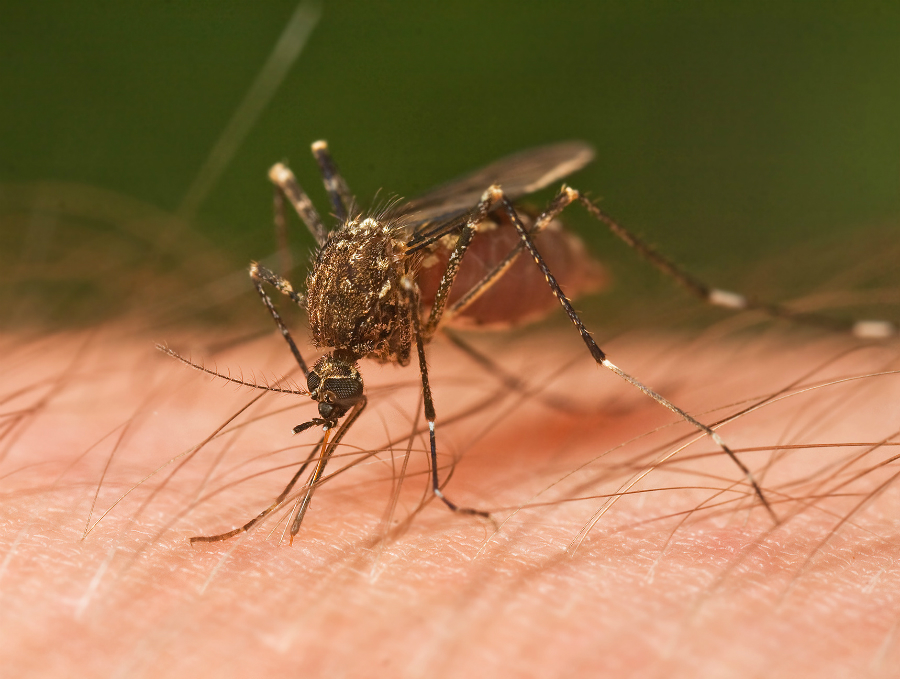New malaria vaccine injects subjects with 50,000 live parasites that invade the liver… claims to be “100% effective”
03/02/2017 / By Lance D Johanson

In the fight against malaria, researchers from the University of Tübingen believe they have the winning approach. The new immunization protocol requires healthy volunteers to be injected with whole, live parasites that transmit malaria. The individual is then required to ingest an anti-malaria drug to weaken the live parasites. Peter Kremsner, director of the Institute for Tropical Medicine in Tübingen, declared the immunization approach to be 100 percent effective in an interview with DW.
The live parasite immunization method was tested on 67 healthy individuals who have never had malaria. After injection, the parasites concentrate in the liver. When the parasites make their way into the blood stream, the anti-malaria drug targets them and kills them so they can’t do any damage. This new approach differs from other methods. For instance, the European Medicines Agency came up with a vaccine that used the parasite’s surface molecules as antigens, but the method didn’t stimulate the immune system to recognize all the molecules of the parasite, leading to its poor success rate at eliciting an immediate immune response.
Kremsner’s new approach uses the whole parasite so the participant’s immune system can recognize more than just one part of the parasite. By exposing the body to the whole parasite, Kremsner believes that the person’s immune system can respond more quickly to different molecules so malaria can be stopped at an early stage.
The researchers are not certain how long this kind of immune system stimulation will last. How far into the future will the person’s immune system be equipped to respond to malaria? Will injected individuals become dependent on the oral anti-malaria drug to combat the parasites? Could some parasites survive the drug treatment and remain viable but dormant in the body, only to surge back into active status when that person’s immune system suffers a stress event?

How will the immunization protocol work on the many different blood types and different expressions of immune system health? Not everyone’s bodies will respond the same. Have the potential toxic side effects of the drug itself been taken into consideration?
Will the injected live parasites find a way to survive inside people over time? Microbial resistance is a common problem with synthetic drugs and vaccine approaches. How will the parasites resist the attacks over time? As with any vaccine, this immunization approach ignores and weakens the role of the body’s humoral immune system for long-term defense. There are several anti-parasitic, blood cleansing compounds that come from plants that allow the immune system to properly adapt and respond to whatever it faces. In one study, garlic oil controlled Trypanosoma, Plasmodium, Giardia and Leishmania.
Kremsner says that the most effective approach in clinical trials involved an injection of 50,000 parasites and the oral consumption of the anti-malaria drug simultaneously. He did not specify how this method would prove viable in the long run. Why would anyone want to submit themselves to a live parasite injection in the first place, only to need a drug to kill what was injected? How is this really any different from just getting malaria and treating it with drugs?
Kremsner told DW, “We’re experimenting with the dosage and the time frame to see if you could take it for a shorter time so it’ll work for travel medication.” Kremsner also said they are looking for a way to put both the vaccine and the drug in the same syringe.
Kremsner finished up the interview saying, “If the vaccine is really 100 percent effective after a single injection, then people can do away with their mosquito nets. But I wouldn’t suggest that right away. Plus, mosquito nets also provide protection against other tropical diseases transmitted by mosquitoes, like dengue fever. So you won’t be able to give them up entirely.”
This so-called 100 percent effective immunization method will only make people dependent on the injections and the drugs. What happens when the immunity wears off? This model seems to be based on the perpetual need for more doses. It’s what the vaccine paradigm of healthcare has burdened the world with — dependence on more immune system stimulants. (RELATED: For more news on vaccines, visit Vaccines.News)
Sources:
Submit a correction >>
Tagged Under:
drugs, Malaria, vaccines
This article may contain statements that reflect the opinion of the author





















